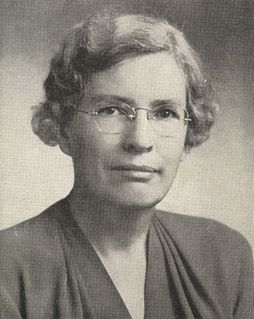A Quote by Samuel Johnson
Of many, imagined blessings it may be doubted whether he that wants or possesses them had more reason to be satisfied with his lot.
Related Quotes
It was with good reason that God commanded through Moses that the vineyard and harvest were not to be gleaned to the last grape or grain; but something to be left for the poor. For covetousness is never to be satisfied; the more it has, the more it wants. Such insatiable ones injure themselves, and transform God's blessings into evil.
True happiness is to enjoy the present, without anxious dependence upon the future, not to amuse ourselves with either hopes or fears but to rest satisfied with what we have, which is sufficient, for he that is so wants nothing. The greatest blessings of mankind are within us and within our reach. A wise man is content with his lot, whatever it may be, without wishing for what he has not.
But that is how men are! Ungrateful and never satisfied. When you don't have them they hate you because you won't; and when you do have them they hate you again, for some other reason. Or for no reason at all, except that they are discontented children, and can't be satisfied whatever they get, let a woman do what she may.
In most ages many countries have had part of their inhabitants in a state of slavery; yet it may be doubted whether slavery can ever be supposed the natural condition of man. It is impossible not to conceive that men in their original state were equal; and very difficult to imagine how one would be subjected to another but by violent compulsion. An individual may, indeed, forfeit his liberty by a crime; but he cannot by that crime forfeit the liberty of his children.
We may not know when or how the Lord's answers will be given, but in His time and His way, I testify, His answers will come. For some answers we may have to wait until the hereafter. This may be true for some promises in our patriarchal blessings and for some blessings for family members. Let us not give up on the Lord. His blessings are eternal, not temporary.
Whenever I hear about a child needing something, I ask myself, 'Is it what he needs or what he wants?' It isn't always easy to distinguish between the two. A child has many real needs which can and should be satisfied. His wants are a bottomless pit. He wants, for example, to sleep with his parents. He needs to be in his own bed. At Christmas he wants every toy advertised on television. He needs only one or two.
Parenting forces us to get to know ourselves better than we ever might have imagined we could--and in many new ways. . . . We'll discover talents we never dreamed we had and fervently wish for others at moments we feel we desperately need them. As time goes on, we'll probably discover that we have more to give and can give more than we ever imagined. But we'll also find that there are limits to our giving, and that may be hard for us to accept.
Notwithstanding his very liberal laudation of himself, however, the Major was selfish. It may be doubted whether there ever was a more entirely selfish person at heart; or at stomach is perhaps a better expression, seeing that he was more decidedly endowed with that latter organ than with the former.
If you tell God no because He won't explain the reason He wants you to do something, you are actually hindering His blessing. But when you say yes to Him, all of heaven opens to pour out His goodness and reward your obedience. What matters more than material blessings are the things He is teaching us in our spirit.
Four characteristics constitute anyone who possesses them a sheer hypocrite, and anyone who possesses one of them possesses a characteristic of hypocrisy till he abandons it: when he is trusted he betrays his trust, when he talks he lies, when he makes a covenant he acts treacherously and when he quarrels he abuses.
When I'm in the process of making a movie I'm not thinking about the finished result, and whether people have to see it once or more than once, and what the reaction to it will be. I just make it, and then I live with the consequences, some of which may not be as pleasant as I'd like! I know one thing, however. Many viewers may come out of the theater not satisfied, but they won't be able to forget the movie. I know they'll be talking about it during their next dinner. I want them to be a little restless about my movies, and keep trying to find something in them.
I recently went to my staircase at Clare College, Cambridge and there were women there! There have been a lot of convincing studies recently about the loss of productivity in the Western male. It may be that entertainment culture now is so engaging that it keeps people satisfied. We didn't have that. Science was much more fun than listening to the radio. When you are 16 or 17 and in that inherently semi-lonely period when you are deciding whether to be an intellectual, many now don't bother.




































